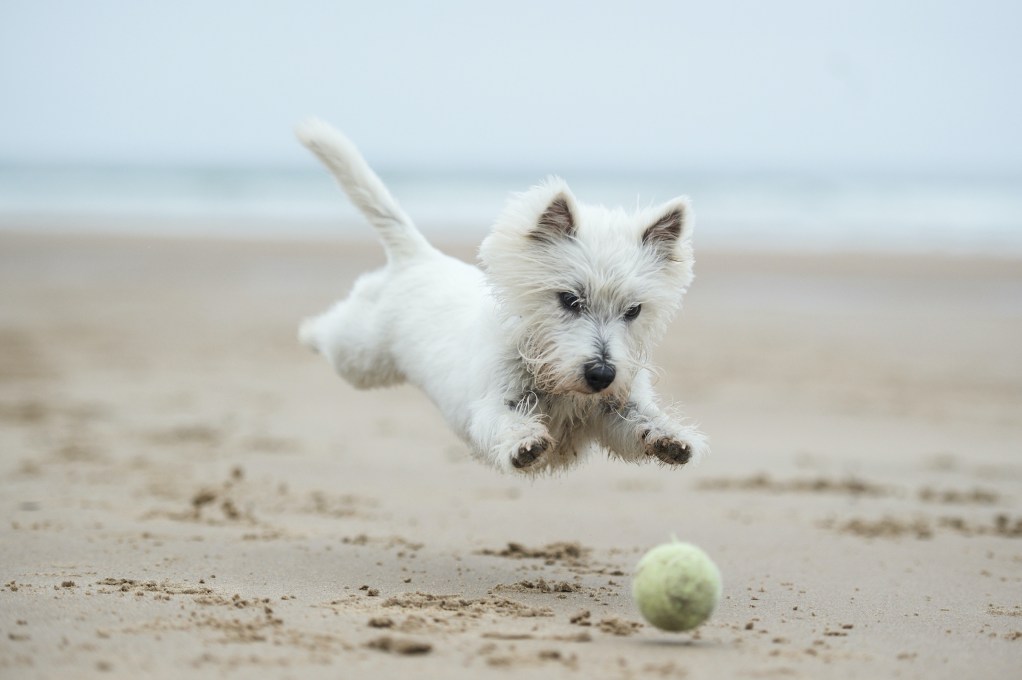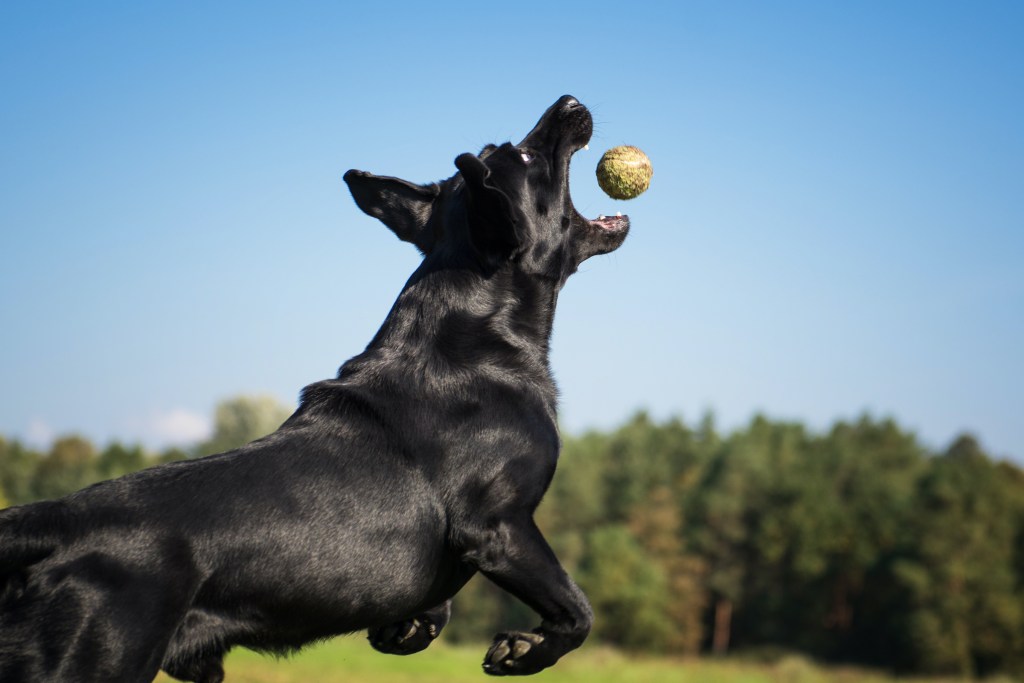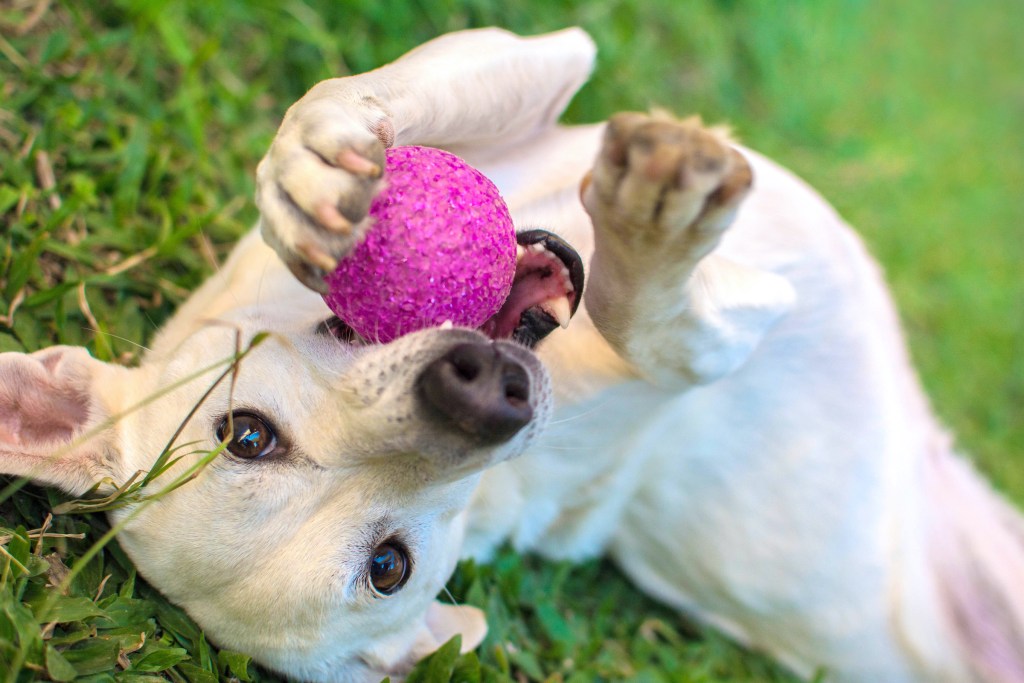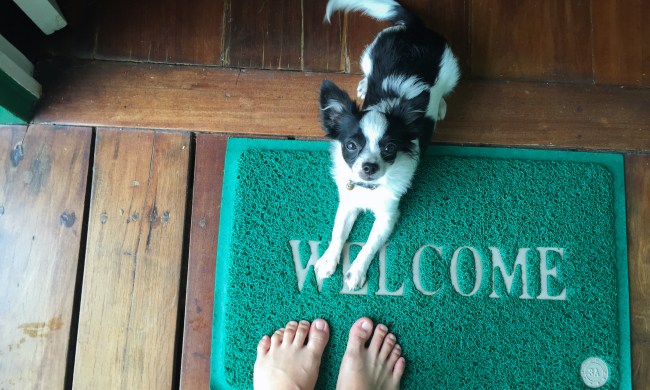Dogs and tennis balls go together like peanut butter and jelly, but can too much of a good thing be a problem? There are pups out there who are more than fond of their ball toys — whether it comes to playing fetch or simply having a comfort item to carry around — though their obsession can leave their owners feeling tired and confused.
Even if you’re not engaged in a constant game of fetch, your dog’s ball obsession can get old. Luckily, we’ve consulted a few canine behavior experts, and we’ve learned a few strategies for using your dog’s favorite toy to your advantage.
Is your dog obsessed with balls? Here’s why — and what you can do about it.

Why is my dog obsessed with a ball?
Whether your pup is just a really big fan of fetch or he’s constantly obsessed with their favorite sphere, his interest in balls has more to do with prey than play. Centuries ago, canine ancestors had much stronger hunting instincts which were essential to the pack’s survival. Although these instincts have been “bred out” as dogs were domesticated, notes dog trainer Adrienne Farricelli, many of the same urges are still present — they just show themselves in different ways.
You’ll see a dog’s prey drive expressed in a safe way during playtime. Chasing, catching, and even destroying a ball can satisfy those basic instincts in a way that get’s your dog’s adrenaline rushing (via Farricelli). Just like a person debating one more bite of a yummy snack, a dog can easily find himself coming back to the ball to seek these feelings again and again.

Can a dog be too obsessed with a ball?
Let’s stick with the snack analogy: too much of a good thing can turn into a bad thing, right? It’s absolutely possible for a dog to enjoy playing with a ball so much that it’s hard to stop or to satisfy those instincts any other way.
Brian Gallardo with Awoken K9 Training notes that fixation can be one of the first signs of obsession, though it’s not necessarily concerning. When a dog is fixated on a ball, unable to take her eyes off it from the moment she sees it, that ball could become a helpful tool for training or a meaningful reward during special moments. When you begin to notice possessiveness, however, you may want to keep a closer eye on the situation.
It’s important that your dog does not see her toy as something more valuable than you, as this can make training and bonding difficult (via Gallardo). Obsession with a ball can also cause conflict between dogs or with anyone who tries to take the ball, even just for play. On a more basic level, a dog who feels obsessed with a ball can find herself chasing it into a dangerous area, like a busy street, in the blink of an eye.

How do I make my dog less obsessed with a ball?
While you may not be able to change the way your dog feels about his favorite ball, you can help him control how he acts around it.
Impulse control
A great place to start is with impulse control, which really just takes a lot of practice. You’re already one step ahead if you’ve tried obedience commands with your dog, as “sit,” “down,” and “wait” can be helpful in situations like this.
To practice impulse control, notes Gallardo, have your dog sit or lie down near the ball without touching it. Have her wait a moment before you reward her with some playtime, and see if you can increase her wait time by a few seconds the next time you try. Once your pup understands the concept of getting the reward, your job could get a ton easier.
Reward
In fact, using the ball as a reward can be helpful in a myriad of circumstances. Obedience, loose-leash walking, and even agility training can be a success when you find the right reward for your dog; just practice a bit of impulse control beforehand so your buddy can absorb what you’re trying to teach instead of only feeling the excitement for the ball.
Exercise
If your dog is obsessed with balls, why not use them to your advantage? You can engage your pet in a game of fetch to tire him out and keep him mentally stimulated — all without exerting yourself too much. As long as you take the time to teach your dog how to fetch, he’ll be the only one doing the running.
Believe it or not, it can get even easier. You can invest in a tennis ball launcher that will basically play fetch for you. Now you can give your arm a break while watching your pup enjoy his favorite activity. It’s a win-win!
So, if you have a ball-obsessed dog on your hands, don’t worry! Obsession with their favorite toy isn’t necessarily bad, and there are lots of things you can do in case it does become a problem. If you need to, you can always enlist the help of your local dog trainer, who can give you personalized advice based on your goals and your pup’s behavior. There are plenty of options out there, rest assured.



